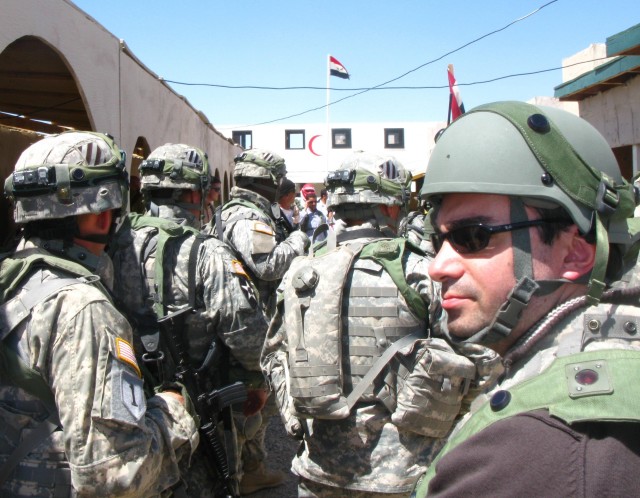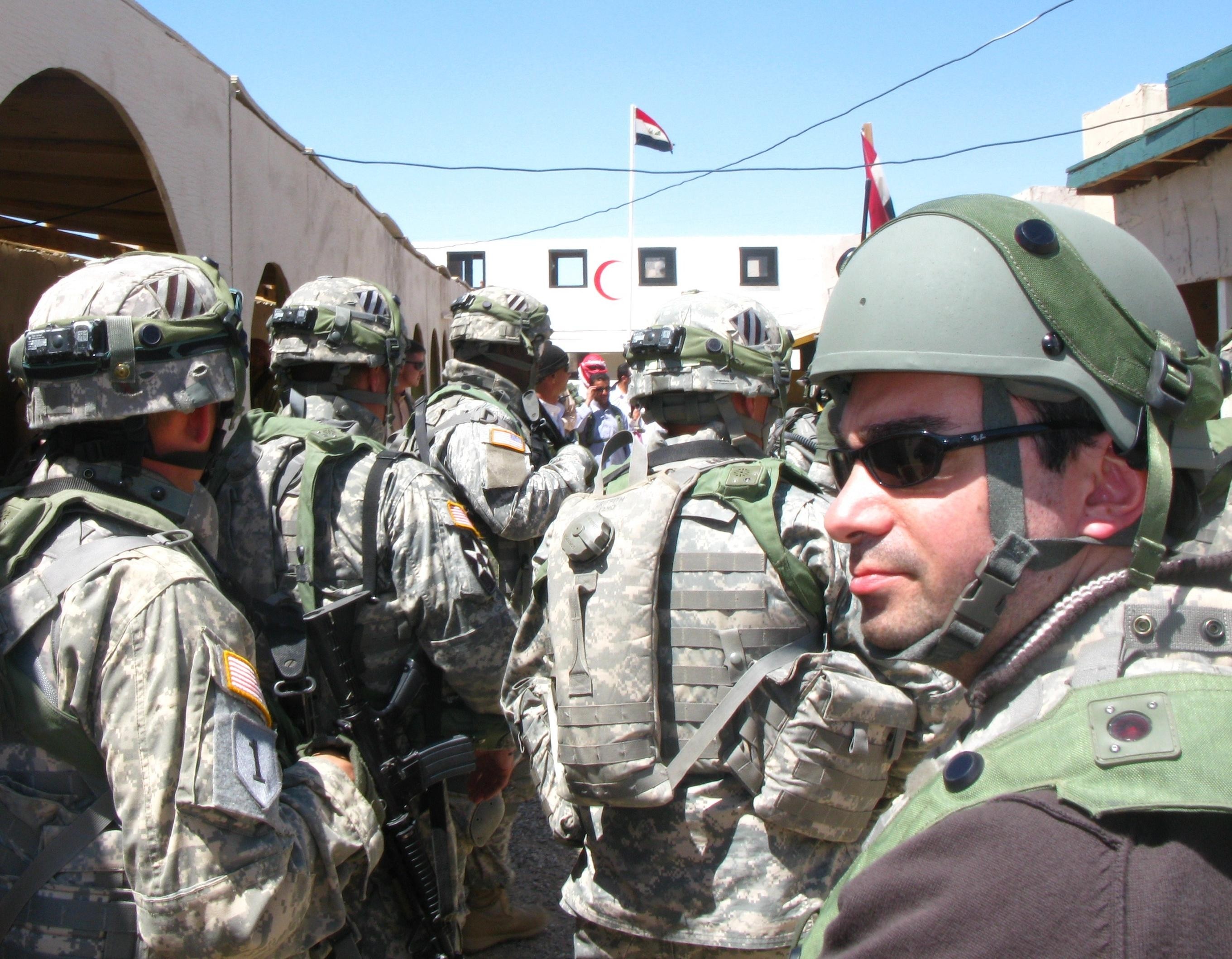
FORT IRWIN, Calif. - State Department officials who are scheduled to provide diplomatic and legal expertise to Iraq's Provincial Reconstruction Teams later this year participated in pre-deployment exercises alongside their 4th Infantry Brigade Combat Team, 3rd Infantry Division counterparts at the National Training Center, April 24.
"It's been a really good exercise," said Tim Eyaelnant, a State Department officer who is training with the 1st Battalion, 76th Field Artillery Regiment, 4th IBCT in the staged town of Abar Layla.
"We are learning how to meet with the local officials, what kind of message to take to them and how to listen to them," Eyaelnant said. "It really prepares us well for what's going to happen in real life."
Training at the Fort Irwin, Calif.-based installation helps the State Department officials work with Afghans and Iraqis, and with their American counterparts.
"We learn to work together with our military counterparts so that we understand each other's culture and to be more effective once we get to Iraq and Afghanistan," Eyaelnant said.
The PRT model has been one of the key means for providing assistance to countries such as Iraq and Afghanistan for some time, but it wasn't until recently that the State Department and the Army decided to join forces during training at the NTC.
"The State Department has been doing training at NTC for the last six to eight months," Eyaelnant said. "PRTs are a fairly old concept, but it's much more developed now. I think as the military is getting ready to leave Iraq it becomes more important to build the long-term stability on the civilian side, which will help Iraqis to be there and construct the country as we leave."
Other State Department officials expressed what they believe will be the PRT's biggest challenges in Iraq.
"Obviously, Iraq is a post-conflict environment," said David Cauvill. "It's still got a lot of fractures in the society itself. Its culture by its very nature is different than our culture. Dealing with that and communicating our goals and objectives in a way that's meaningful to them, in their language and their culture is (I think) the biggest challenge of all."
Cauvill also explained what he believes the PRT's role will be during the upcoming deployment.
"We're here to be a force multiplier," he said. "[We're here] to take the groundwork that has been laid with the space that has been created by 'the surge,' to get behind and assist the locals to increase their capacity to govern and to sustain their society."
Both officials expressed the need for Iraqis to take the lead in redeveloping their nation.
"They're masters of their own universe," Eyaelnant said. "This is their country. We're here to help, we're here to assist as much as possible, but in the long run, they'll be here. They're the ones who will need to build their own country."
The training is both realistic and challenging at the National Training Center. The actors only speak Arabic and the interpreters are few.
The authenticity, however, is designed to help prepare the PRTs and servicemembers for success.

Social Sharing